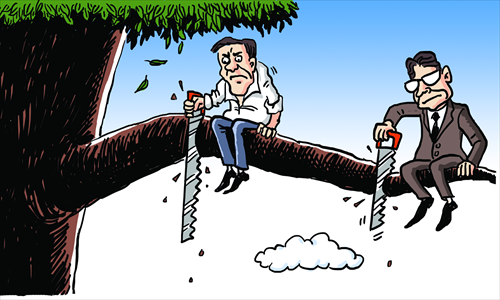East Asia needs reconciliation, not hatred

East Asia is the most dynamic sector of the global economy. But challenges in the region dating back to the Cold War still remain unresolved.
In Europe the Cold War ended 30 years ago with the collapse of the Soviet Union, but Northeast Asia has never achieved the degree of reconciliation that Europe was able to accomplish.
Certain features of the Cold War, like the prevalent sense of insecurity, mutual suspicions, misperceptions and the lack of communication channels, remain challenges to our shared security and prosperity.
This proves to be especially problematic when dealing with China's rise and territorial disputes.
China's economic growth provides a strong engine for regional prosperity and interdependence.
Interdependence supposedly reduces the risks of conflict and provides incentives for reconciliation by making everybody better off, as in the experience of the EU.
However, the positive effect of economic interdependence in East Asia is offset by paranoia about China's intentions and a sense of relative decline. China's contribution to regional economy is largely neglected against the shadow of the "China threat."
At the same time, territorial disputes over the Diaoyu Islands and the Dokdo islets draw domestic opinions into mutual resentment and hostilities. While nationalism grows in this region, there are no crisis-management mechanisms to ensure that the prevailing nationalist mood does not escalate into military confrontation.
What's more, there is a real danger that governments will not be able to push back against strong nationalist sentiment and adopt rational policy choices to avoid war at the height of crisis.
The question is, do we wish to live in an environment of antagonism, mutual resentment and the risk of war, or do we want a world that is peaceful, integrated, prosperous and friendly for us and our children?
When West German chancellor Willy Brandt traveled to Warsaw in December 1970, he dropped to his knees before the monument to the Warsaw Ghetto uprising of 1943. Many in Europe were deeply moved by this gesture.
There was no more doubt about the sincerity of German repentance and its commitment not to repeat past atrocities.
In the immediate post-war period, French prime minister Robert Schuman, pushed to give up French privilege in the Ruhr and the Saar in Germany, in an attempt to prevent further war between the two countries and create a common market across Europe for coal and steel that would make "war not only unthinkable but materially impossible."
The Schuman Declaration of 1950 marked the start of a united Europe and the coming of an age of "permanent peace" in the region.
Could similar acts be attempted in East Asia? The answer is yes, but it will take innovation, determination, and above-all, strong and far-sighted statesman to do so.
One of the attempts was made by former Chinese leader Deng Xiaoping, when he set China's foreign policy toward territorial disputes as setting aside our disputes and jointly exploiting and developing. This principle is very similar to the founding principles of the EU.
Can we carry this on today, and, temporarily suspending disputes while remaining firmly committed to national sovereignty, form joint consortiums to develop and explore these islands?
The consortium could be responsible for all economic activities on and around the islands, such as tourism, the drilling of off-shore oil in the future, and granting fishing licenses.
The profits could be used to compensate victims of World War II, such as comfort women and slave laborers.
They could also be used to fund education for the younger generation on the dangers of war and for activities to strengthen friendship.
There is an old saying, "You can't choose your neighbors, so it's best to be friends with them." This is especially true for countries. We need to make sure that although the steps we take may be very small, they are steps to bring us together as friends, not steps to drive us apart.
The author is a Fulbright fellow at the Center for International and Security Studies, University of Maryland. opinion@globaltimes.com.cn